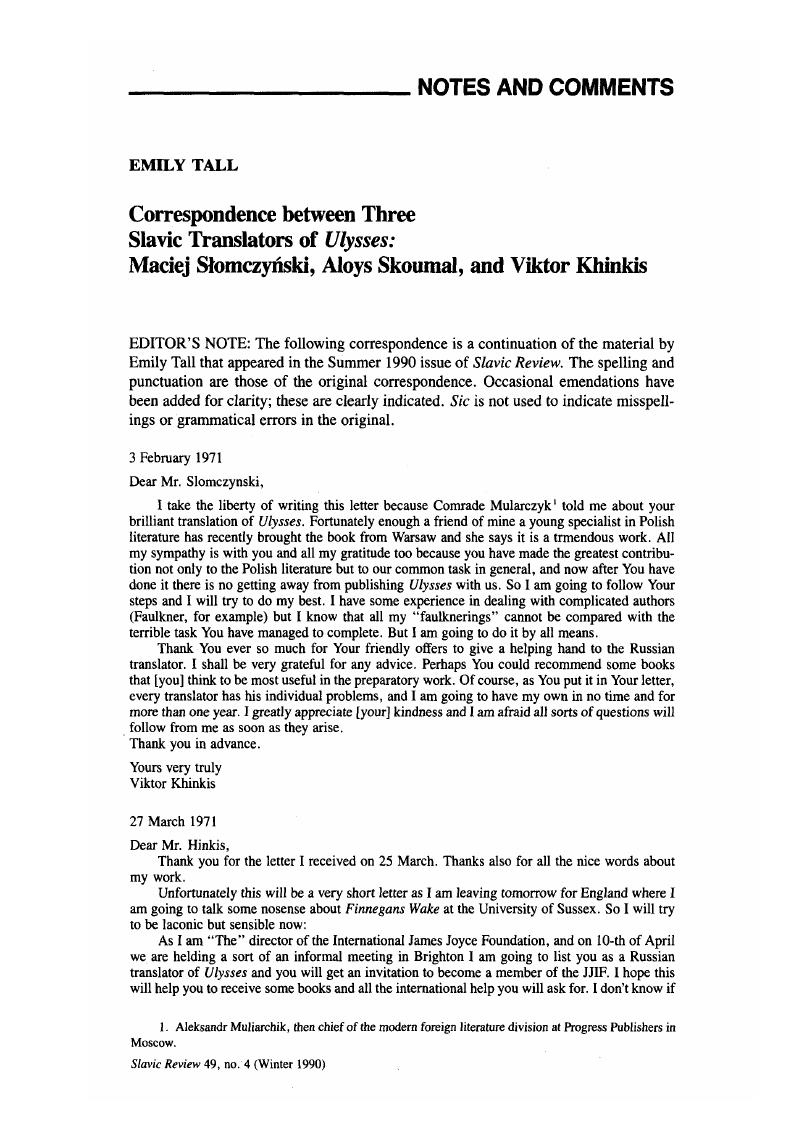No CrossRef data available.
Published online by Cambridge University Press: 27 January 2017

1. Aleksandr Muliarchik, then chief of the modern foreign literature division at Progress Publishers in Moscow.
2. Khinkis usually made five drafts, first translating more or less literally from beginning to end and leaving blanks where he didn't understand and then revising and refining the translation four more times until he was satisfied.
3. A Soviet citizen receives permission to travel abroad only for that particular trip. The only country Khinkis had been permitted to visit was Czechoslovakia.
4. Khinkis, Viktor, Zhizn’ i smeri Rodzhera Bekona (Moscow, 1971)Google Scholar. In the following excerpt, Khinkis uses Aesopian language, that favorite device of Soviet writers to say what they wanted to say by writing about something else, to contrast Bacon's independent spirit and refusal to compromise with the lies and hypocrisy of the Brezhnev era : Bacon belonged to that rare and amazing breed of people who are known as representatives of free thought. He believed in the power of the human intellect, in its ability to find truth independently, freeing itself from fetters. He thought independently. He tried to teach others to do so as well. Let us recall his words about blind worship of unworthy authorities and pernicious adherence to widely accepted false beliefs. Roger Bacon's path was long and hard. He was cruelly treated. His enemies slandered him and deprived him of freedom, but they did not succeed in forcing him to submit. Amid cruelty and persecution he was never false to what he saw as the only meaning of human life : the search for truth.